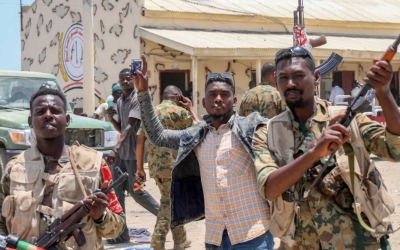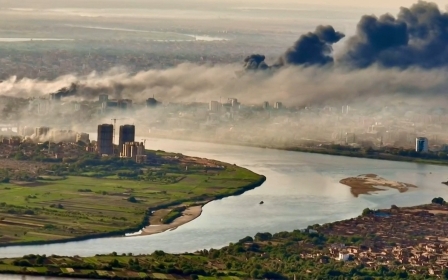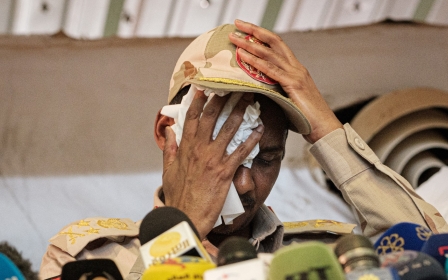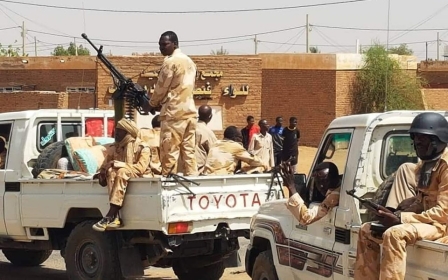Saudi Arabia's cultural office in Sudan stormed and looted
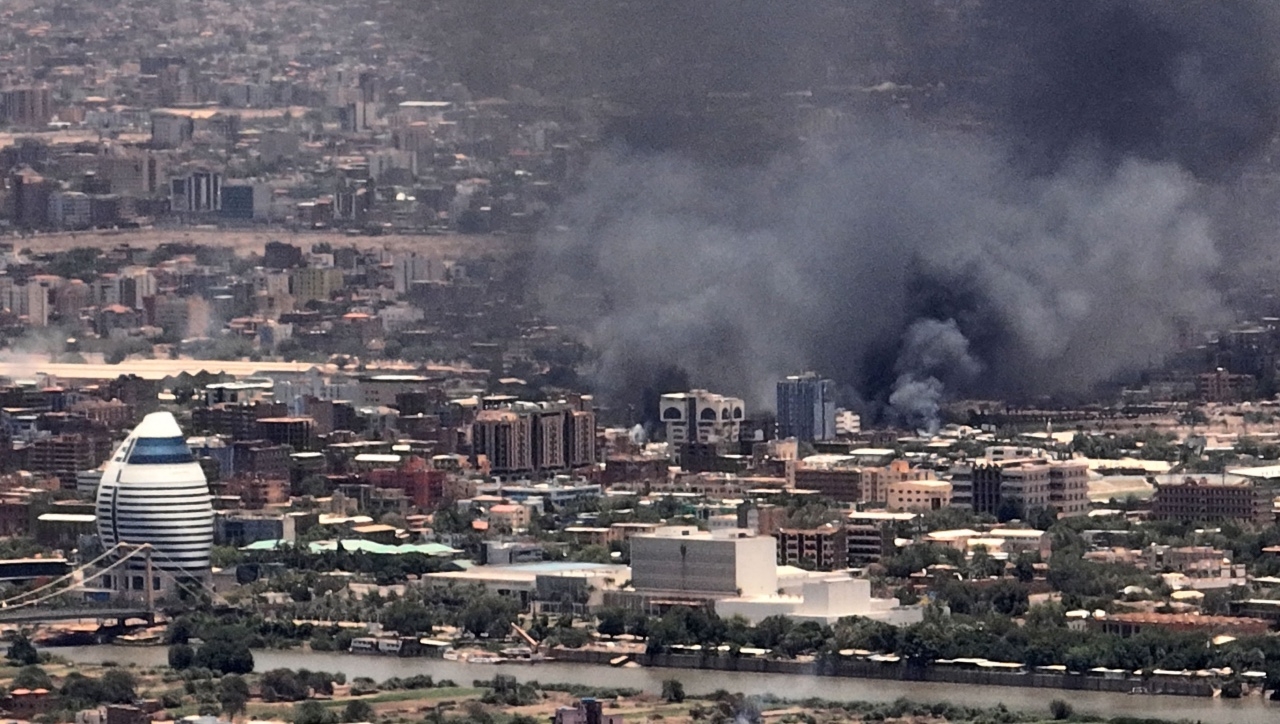
Saudi Arabia’s cultural attache building in the Sudanese capital Khartoum was attacked on Tuesday by an armed group that destroyed equipment and cameras and seized some of the property, the foreign ministry said on Wednesday.
“The Ministry of Foreign Affairs expressed the Kingdom of Saudi Arabia’s condemnation in the strongest terms of the storming of the Cultural Attaché building,” the statement said.
“The Ministry renews the Kingdom’s calls to halt the escalation of violence in Sudan between the warring sides and ensure protection for diplomats, residents and Sudanese civilians.”
Khartoum has been wracked by fighting between Sudan’s army, led by General Abdel Fattah al-Burhan, and his erstwhile-ally, Mohamed Hamdan Daglo, also known as Hemeti, who commands the Rapid Support Forces (RSF) paramilitary.
Tensions between the two military men have been simmering for weeks over disagreements on incorporating the RSF into Sudan’s regular army.
New MEE newsletter: Jerusalem Dispatch
Sign up to get the latest insights and analysis on Israel-Palestine, alongside Turkey Unpacked and other MEE newsletters
Middle East Eye reported previously that fighting erupted after the RSF launched a three-pronged assault on Burhan’s residence, killing 35 members of his presidential guard in a failed attempt to capture or potentially kill the general and de facto head of state.
The storming of the Saudi diplomatic outpost came the same day South Sudan announced Hemeti and Burhan had agreed to a seven-day truce.
As of Wednesday, residents in Khartoum continued to report sounds of gunfire. Previous attempts to reach a ceasefire have failed.
No group claimed responsibility for the attack on the Saudi building, but the RSF has been accused of widespread looting throughout the country.
The storming also adds a new layer to the fighting and underlines the diverging priorities between Gulf powers in the African country.
'Saudi Arabia and UAE fallout'
Saudi Arabia has attempted to position itself as a mediator between Sudan’s warring factions and even civilian actors.
Analysts have credited its diplomatic footprint in Sudan as one of the main factors that could empower it to play a mediating role. The Saudi ambassador to Sudan, Ali Hassan Jaafar, has been posted to the country since 2018. He previously served as Riyadh’s ambassador to Russia and is regarded as one of the kingdom’s more skilled diplomats.
Last week, MEE reported that the Saudis were working with US backing to bring Burhan and Hemeti together for peace talks in Riyadh in the coming weeks. The efforts were first reported by Sky News Arabic.
Saudi Arabia’s “cautious” approach to the conflict in Sudan contrasts with what analysts have described as the UAE’s “daring” orientation.
While Saudi Arabia has pursued a more neutral position in the fighting, the UAE is viewed as aiding Hemeti.
The RSF commander has used the UAE as a hub for gold trading operations. He maintains a bank account there. Two months before fighting in Sudan erupted, Hemeti travelled to the UAE where he met with senior Emirati leaders including the country’s vice president, Sheikh Mansour bin Zayed Al Nahyan.
Ties between the Emirates and RSF go back to Yemen, where Hemeti sent fighters to bolster the ranks of forces aligned with Saudi Arabia and the UAE against Houthi rebels. He is also suspected of sending troops to fight on the side of Libyan military chief and Emirati ally, Khalifa Haftar, who the Wall Street Journal reported sent ammunition to the RSF amid recent fighting.
Abu Dhabi and Riyadh's differing approaches to Sudan underscore how the two allies have fallen out recently on issues ranging from energy policy to the war in Yemen.
Analysts tell MEE Saudi Arabia is eager to see stability in Sudan, out of concern that a power struggle there could jeopardise the kingdom's economic agenda, which relies heavily on its Red Sea coast. The Emirates lack direct access to the Red Sea but have used recent conflicts like Yemen as an opportunity to expand their footprint in the strategic region.
In December, Abu Dhabi Ports Group signed a deal to develop a new $6bn port 200 miles north of Port Sudan. The company is owned by ADQ, a holding company run by the UAE’s national security chief, Sheikh Tahnoun bin Zayed Al Nahyan.
Middle East Eye delivers independent and unrivalled coverage and analysis of the Middle East, North Africa and beyond. To learn more about republishing this content and the associated fees, please fill out this form. More about MEE can be found here.


